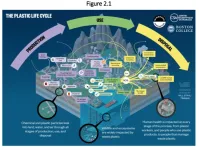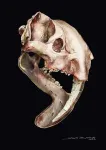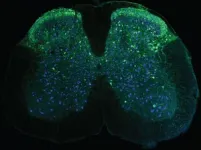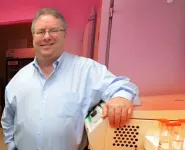(Press-News.org) Chestnut Hill, Mass (3/21/2023) – Philip Landrigan, MD, director of the Program on Global Public Health and the Common Good and the Boston College Observatory on Planetary Health, is the lead author of a groundbreaking new report about the far-reaching health hazards of plastics manufacturing and pollution across the entire product life cycle. Published in the journal Annals of Global Public Health and released in Monaco during Monaco Ocean Week, the study was undertaken by an international group of scientists led by the Observatory and partners at Australia’s Minderoo Foundation and the Centre Scientifique de Monaco.
Landrigan discussed the unprecedented scope of the study, the first to examine the economic, health, environmental, and social costs associated with plastics from the first stages of fabrication to the many end states of the material that is seemingly everywhere – in homes and businesses, buried in landfills, scattered along roadsides, amassing in oceans and waterways, and infiltrating the bodies of humans and animals.
Countless studies have examined plastic pollution and health risks. What is different about this analysis?
This is the first analysis to look at hazards to human health caused by plastics across their entire life cycle - cradle to grave – beginning with extraction of the coal, oil and gas from which nearly all plastics are made, through production and use, and on to the point where plastic wastes are thrown into landfills, dumped into the ocean or shipped overseas.
Previous studies have looked at pieces of the plastic life cycle. They have looked at the problem from many different perspectives based on expertise in air pollution, or the oceans, or fracking, or medicine. But until now, nobody has looked at the entire problem all at once. That is what is different about our approach…that and the fact that we focused very specifically on plastics’ impacts on human health.
Why did you do this study at this time?
We did this study because we are very concerned about the impacts for human and planetary health of massive, almost exponential recent increases in plastic production and plastic waste. Eight billion tons of plastic have been produced since 1950, more than half of it in the last 20 years, and production is on track to treble by 2050. This plastic contains thousands of toxic and cancer-causing chemicals that can leach out of the plastic at every stage. And because plastic does not break down in the environment and less than 10 percent is recycled, an estimated six billion tons of chemical-laden plastic waste now contaminate the earth’s environment. This is not sustainable.
Describe the role of the Observatory and its partners at The Prince Albert II of Monaco Foundation and the Minderoo Foundation of Australia in the creation of the Monaco Commission on Plastics and Human Health?
The mission of the Global Observatory on Planetary Health is to look at the big threats to humanity in the 21st Century, including climate change, pollution and biodiversity loss. This study fits right into the center of our agenda and that of the Schiller Institute, which was founded on a vision to expand BC’s research into health, energy and the environment. This study builds also on our earlier work with the Prince Albert of Monaco Foundation and Centre Scientifique de Monaco, starting with our 2020 report on human health and ocean pollution. The Minderoo Foundation is the biggest foundation in Australia and they are very much concerned about the hazards of plastics and have produced a great deal of information on the subject. They came to us and asked us to participate. The Commission is the group of scientists who worked on this report, who bring expertise from around the world, including many of my BC colleagues and our students.
What is the Global Plastics Treaty? Does it already exist?
It does not exist yet, but it is in negotiation. Two years ago, the United Nations Environment Assembly – the annual meeting of environmental leaders from around the world convened by UN – approved a resolution calling for creation of a Global Plastics Treaty. Now international negotiators are working to put it together. Our report is intended to inform the Treaty negotiations. We conclude with a series of recommendations specifically written to dovetail with the negotiations. The Global Plastics Treaty is still two to three years away. But it will resonate with other treaties, including the agreement reached earlier this month known as the Oceans Treaty.
What will it take to, as the report recommends, end plastics pollution by 2040?
A group of global leaders, the High Ambition Coalition, established that target. We thought it was a reasonable goal and we incorporated it into our report. Clearly, we are not going to live without plastic products. Many are essential. But we have to ensure that the plastic we do use is safely produced and properly disposed. Currently, plastic recycling is a failure. Only 10 percent of all plastic is recycled (compared to 75 percent of paper). Not because people don’t want to recycle. But once plastic gets to a sorting facility, most items contain too many toxic chemicals to be safely recycled. As a result, chemical-laden plastic waste is shipped around the world to end up in some of the world’s poorest countries. It ends up in landfills or it is burned, often harming communities that host those facilities.
We try to make a very clear distinction in this report between essential uses of plastic and non-essential uses. A lot of plastic is not essential, particularly single-use plastic like product wrapping. That’s not accidental. The fossil fuel industry sees its markets for gasoline and other fuels declining as the world goes green and they are therefore diverting increasing amounts of coal, oil and gas into plastic manufacture and creating new markets for plastic. The goal of the Global Plastics Treaty is to put a brake on this this runaway production while at the same time preserving essential uses of plastic
What is the Permanent Science Policy Advisory Body the study also recommends be created?
The Permanent Science Policy Advisory Body would be created to inform the work of the Treaty and its negotiators and participants with scientific evidence. All big global agreements, or treaties, need scientific support. They need access to individuals with expertise to make sure the treaty reflects the most recent science. These treaties are never static, they must continually be updated to reflect the best current knowledge.
What was the significance of releasing this report at the beginning of Monaco Ocean Week?
Monaco Ocean Week brings together key stakeholders in the marine sector, from industry, conservation, academia, and government. Releasing the report at this major international meeting underscores the link between plastic pollution and ocean pollution. It is also significant in that Prince Albert II of Monaco is putting his full weight behind the issue. Monaco is a small country, but he is a head of state. He has a seat at the U.N. of equal rank to U.S. President Joseph Biden. When a head of state puts his muscle and his credibility behind a new report or initiative, as Prince Albert is courageously doing here, that is significant.
Is Prince Albert II uniquely positioned to lead on this issue?
Absolutely. He’s his own man and there is also a tradition in his family of protecting the oceans. He’s the third generation of his family to make ocean protection his cause.
This report intends to drive change at a global scale. What makes you confident that can be done?
I am an optimist. I have learned from long experience that the first step in bringing about change is to assemble the facts. That is what we have done in this report. Once data have been collected showing that a material like plastic is causing great harm to human health and the earth’s environment, it is harder for people to say there is no problem. That won’t bring about change overnight, but facts are stubborn things and they don’t go away. Given time, I suspect that the Global Plastic Treaty will be established, checks and balances will be placed on plastic production, and that the currently unrestrained accumulation of plastic waste will slow. We now have an Ocean Treaty, and we have the Paris Climate Agreement to reduce greenhouse gas emissions, so things are moving in the right direction. As a proud Boston College graduate and member of the Boston College faculty, I feel it’s my responsibility to do my bit to live the Jesuit mission to protect our Common Home, to push for change, and to try to advance the Common Good.
END
The Minderoo-Monaco Commission on Plastics and Human Health issues sweeping new report
Boston College’s Phil Landrigan, MD, answers questions about the groundbreaking report on plastics across their life cycle
2023-03-21
ELSE PRESS RELEASES FROM THIS DATE:
Douglas-fir in Klamath Mountains are in ‘decline spiral,’ Oregon State research shows
2023-03-21
CORVALLIS, Ore. – Increases in mortality among Douglas-fir in the Klamath Mountains are the result of multiple factors that have the iconic tree in a “decline spiral” in parts of the region, a new study by the Oregon State University College of Forestry and OSU Extension Service indicates.
Findings, which include a tool landowners and managers can use to assess a stand of trees’ risk as the climate continues to change, were published in the Journal of Forestry.
Douglas-fir, Oregon’s official state tree, is the most abundant tree species in the ...
Cases and transmission of highly contagious fungal infections see dramatic increase between 2019 and 2021
2023-03-21
1. Cases and transmission of highly contagious fungal infections see dramatic increase between 2019 and 2021
Many cases resistant to first-line treatment
Abstract: https://www.acpjournals.org/doi/10.7326/M22-3469
URL goes live when the embargo lifts
A study of national surveillance data found that cases of Candida auris, a highly contagious fungal infection, rose drastically between 2019 and 2021 reflecting increased transmission. The researchers also noted an increase in echinocandin-resistant cases and evidence of transmission, which is particularly concerning because echinocandins are first-line therapy for invasive Candida infections, including C auris. These findings ...
Leading Auckland University researchers elected to NZ Royal Society
2023-03-21
The new Ngā Ahurei a Te Apārangi Fellows have been elected for their distinction in research and advancement of science, technology or the humanities to the highest international standards.
The University of Auckland is New Zealand’s leading research-led university, which Deputy Vice-Chancellor Research, Frank Bloomfield, says is largely due to the quality of its researchers, and the impact their work has within Aotearoa New Zealand and internationally.
“The research and scholarship of our new Fellows is regarded as world leading in their respective areas and as such, they have been recognised by the ...
Almost all countries around the globe criminalise abortion in some circumstances
2023-03-21
Almost all countries around the globe criminalise abortion in some circumstances, despite the public health risks and impact on human rights, finds a review of the scope of penalties for the procedure in 182 nations, published in the open access journal BMJ Global Health.
Some 134 countries penalise those seeking an abortion, while 181 penalise providers, and 159 those who assist in the procedure, the review shows.
The evidence indicates that criminalisation doesn’t deter women from deciding to have an abortion; rather, it limits or delays access to safe abortion and increases the need to turn to unsafe and unregulated services, point out the researchers.
Criminalisation ...
Pregnant women in road traffic collisions at heightened risk of birth complications
2023-03-21
Pregnant women involved in road traffic collisions—even those with minor injuries—are at heightened risk of potentially serious birth complications, including dislodgement of the placenta (placental abruption), very heavy bleeding, and the need for a caesarean section, finds a Taiwanese study published online in the journal Injury Prevention.
And the risks are even higher for those on scooters rather than in cars, the findings indicate.
Road traffic collisions are the leading cause of traumatic injury during pregnancy, with previously published research suggesting they account for up to 70% of such injuries. But most of the evidence base to date on the ...
Solar industry feeling the heat over disposal of 80 million panels
2023-03-21
The renewable energy sector is facing a quandary: how Australia will dispose of 80 million solar panels in an environmentally friendly way when they reach the end of their life.
Paradoxically, one of the reasons people are installing solar photovoltaic (PV) panels in huge numbers is to help the environment, but the industry is now grappling with the anticipated waste generated by 100,000 tonnes of panels due to be dismantled in Australia from 2035.
A new study led by the University of South Australia has proposed a comprehensive ...
Going beyond English is critical for conservation
2023-03-21
Research in languages other than English is critically important for biodiversity conservation and is shockingly under-utilised internationally, according to an international research team.
Dr Tatsuya Amano, from The University of Queensland’s School of Biological Sciences, led a worldwide study that investigated national reports on biodiversity conservation in 37 countries and territories where English is not an official language.
“Non-English-language literature is almost entirely neglected in global biodiversity assessments,” Dr Amano said.
“This means there’s a serious ...
Discovery of relativistic jets blowing bubbles in the central region of the Teacup Galaxy
2023-03-21
When matter falls into supermassive black holes in the centers of galaxies, it unleashes enormous amounts of energy and is called an active galactic nuclei (or AGN). A fraction of AGN release part of this energy as jets that are detectable in radio wavelengths that travel at velocities close to light speed. While the jet travels across the galaxy, it collides with the clouds and gas around it and in some cases may push this material away in the form of winds. However, which conditions preferentially trigger these winds to blow out the gas from galaxies are still poorly understood.
The ...
Promoting healthy longevity should start young: pregnancy complications lift women’s risk of mortality in the next 50 years
2023-03-21
In Singapore, about 15 to 20 per cent of pregnancies are complicated by gestational diabetes, 5 to 10 per cent of pregnancies are affected by hypertensive disorders of pregnancy, and more than 10 per cent of pregnancies end as pre-term delivery. Pregnancy is a critical reproductive event for women, with substantial life-long health implications.
This brings forward an important question: how would pregnancy complications inform women’s risk of mortality in the long-term? However, this is often understudied due to a lack of long-term ...
Richard McIndoe, PhD, will direct Coordinating Unit for new, national research initiative in diabetes, obesity
2023-03-21
AUGUSTA, Ga. (March 21 , 2023) – Richard McIndoe, PhD, a bioinformatics expert and director of the Center for Biotechnology and Genomic Medicine at the Medical College of Georgia, is leading the Coordinating Unit of a new national research initiative designed to move science forward in understanding common, life-changing metabolic problems like diabetes and obesity.
The National Centers for Metabolic Phenotyping in Live Models of Obesity and Diabetes, or MPMOD, is a multicenter initiative being established by the National Institute of Diabetes and Digestive and Kidney ...
LAST 30 PRESS RELEASES:
Bureaucracy Index 2026: Business sector hit hardest
ECMWF’s portable global forecasting model OpenIFS now available for all
Yale study challenges notion that aging means decline, finds many older adults improve over time
Korean researchers enable early detection of brain disorders with a single drop of saliva!
Swipe right, but safer
Duke-NUS scientists identify more effective way to detect poultry viruses in live markets
Low-intensity treadmill exercise preconditioning mitigates post-stroke injury in mouse models
How moss helped solve a grave-robbing mystery
How much sleep do teens get? Six-seven hours.
Patients regain weight rapidly after stopping weight loss drugs – but still keep off a quarter of weight lost
GLP-1 diabetes drugs linked to reduced risk of addiction and substance-related death
Councils face industry legal threats for campaigns warning against wood burning stoves
GLP-1 medications get at the heart of addiction: study
Global trauma study highlights shared learning as interest in whole blood resurges
Almost a third of Gen Z men agree a wife should obey her husband
Trapping light on thermal photodetectors shatters speed records
New review highlights the future of tubular solid oxide fuel cells for clean energy systems
Pig farm ammonia pollution may indirectly accelerate climate warming, new study finds
Modified biochar helps compost retain nitrogen and build richer soil organic matter
First gene regulation clinical trials for epilepsy show promising results
Life-changing drug identified for children with rare epilepsy
Husker researchers collaborate to explore fear of spiders
Mayo Clinic researchers discover hidden brain map that may improve epilepsy care
NYCST announces Round 2 Awards for space technology projects
How the Dobbs decision and abortion restrictions changed where medical students apply to residency programs
Microwave frying can help lower oil content for healthier French fries
In MS, wearable sensors may help identify people at risk of worsening disability
Study: Football associated with nearly one in five brain injuries in youth sports
Machine-learning immune-system analysis study may hold clues to personalized medicine
A promising potential therapeutic strategy for Rett syndrome
[Press-News.org] The Minderoo-Monaco Commission on Plastics and Human Health issues sweeping new reportBoston College’s Phil Landrigan, MD, answers questions about the groundbreaking report on plastics across their life cycle





